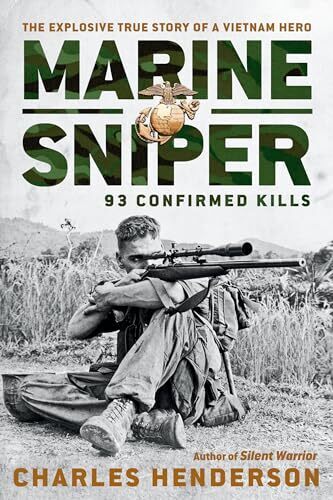
The good
-
The story of Carlos Hathcock is genuinely insane. It is straight out of legend. I won’t spoil any of it here, but suffice it to say that if you’ve heard stories of snipers doing crazy, impossible things, there’s a pretty good chance that sniper was Sergeant Hathcock.
-
I enjoyed the narrative style used in this book, which is largely nonfiction (other than some dialog the author admits to inventing to fill in the story). It could be tense and exciting at times, while still feeling relatively fact-based, and giving you a good feel for what it might be like to be a sniper in Vietnam.
-
I had never really considered how different sniper combat is versus other types of combat. In most types of combat, it’s two combatants going head to head, each actively engaged, and each having the option to surrender or retreat at any time. With sniper combat, it’s much more one-sided, closer to an assassination or hunting than combat, with the other party typically having no chance to fight back, surrender, or retreat. On top of that, snipers spend an inordinate amount of time working either completely alone or with at most 1 other person (a spotter), crawling around, laying perfectly still, and generally trying to be invisible. All of this means that it takes a very particular kind of individual to be a sniper.
The not so good
-
The book is very focused on Sergeant Hathcock and his feats, and doesn’t give you much of a sense of the rest of the Vietnam War going on around him. I don’t need a full retelling, but a little more flavor on what was happening in the war felt like it would’ve rounded out the story a bit better, and provided important context on what the snipers were doing and why.
-
Reading books like this always gives me a bit of cognitive dissonance. On the one hand, these are soldiers placed in impossible situations doing whatever they have to keep themselves and their comrades alive. On the other hand, why the US was at war in Vietnam in the first place is still not clear, and once you’re in war, people end up doing horrific things. One of the very first stories in this book is of Hathcock killing a child riding a bike—a child carrying rifles for the Vietcong. The book touches on the ethics of this a little bit, as well as the general ethics of being a sniper, which I appreciated, but I felt like it wasn’t quite enough. Surely things like this must weigh heavily on the soldiers and commanding officers? Surely a story of being a sniper can afford to weigh in on what sort of mentality you must have to hunt adults or even children?
